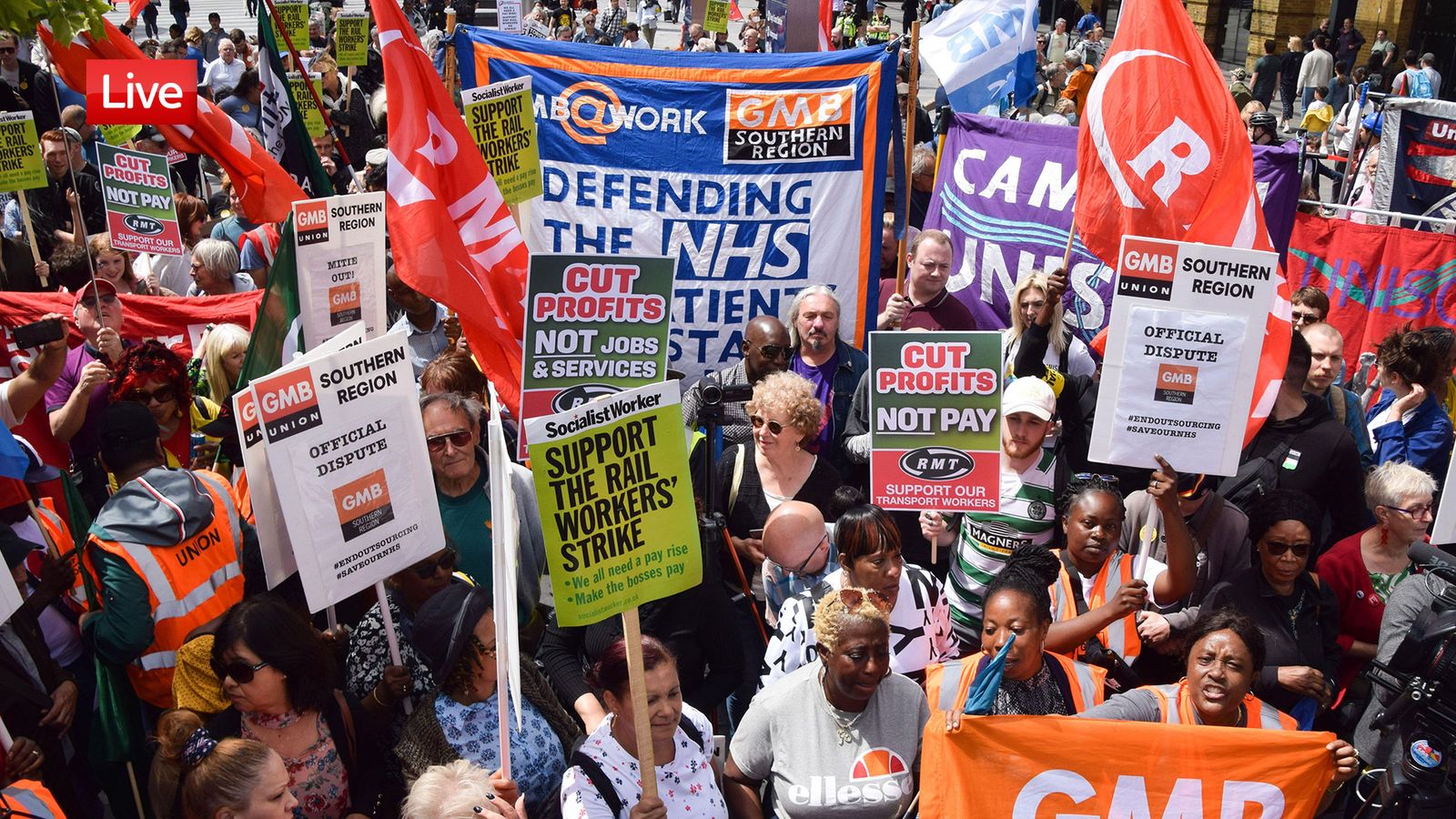Union leaders could coordinate industrial action across the NHS this winter to cause “maximum impact”, the head of the GMB has suggested.
Andy Prendergast, the GMB national secretary, said health workers have had enough of “public school boys who run the government and simply don’t care” about their pay demands.
More than 10,000 ambulance workers from the GMB voted to strike yesterday, following in the footsteps of nurses in opting to walk out.
Kay Burley puts your questions to union leaders – politics live
Asked if there will be a “coordinated strike” in the health service, Mr Prendergast told Sky News: “We will be talking to the other unions.
“We know that the nurses have got their first ballot in over 100 years. We know that our colleagues in Unite, in Unison are currently delivering ballots.
“So we’ll be looking to make sure this has the maximum impact.”
It was put to Mr Prendergast that the safety of patients could not be guaranteed if there is coordinated strike action between unions and the NHS.
He argued their safety is not being guaranteed now due to the staffing crisis, with poor pay driving many out of the profession.
“One third of our members in the ambulance service believe that they have been involved in a delay that has led to a patient dying, so this isn’t a situation where this is a service that runs perfectly well,” he said.
NHS ‘dying on its feet’
“This is a service that’s dying on its feet and our members are actually standing up and the public of Britain should support them. This is a matter of a life or death situation.”
Mr Prendergast said NHS workers “work extremely hard, often for wages that a lot of people wouldn’t get out of bed for”.
He added: “Ultimately they are saying enough is enough. It’s time for them to take action. This is the one thing that they can do to try and improve patient safety, to try and improve the terms conditions, to try and deal with 135,000 vacancies that we have among a service that we rely on.”
Paramedics, emergency care assistants, call handlers and other staff are set to walk out in nine trusts:
- South West Ambulance Service
- South East Coast Ambulance Service
- North West Ambulance Service
- South Central Ambulance Service
- North East Ambulance Service
- East Midlands Ambulance Service
- West Midlands Ambulance Service
- Welsh Ambulance Service
- Yorkshire Ambulance Service
The industrial action is due to take place before Christmas, with the union planning to meet reps in the coming days to discuss dates.
Thousands of ambulance workers in Unison, the UK’s biggest trade union, also intend to take industrial action before Christmas.
Up to 100,000 nurses from the Royal College of Nursing are also set to stage a mass walkout in December, one of the busiest months for the NHS.
The army has been placed on stand by in case it is needed to fill roles of NHS workers on strike days.
Several strikes are also taking place across other sectors, with Eurostar security staff announcing on Wednesday that they will be taking part in a walkout next month in a dispute over pay.
Wage price spiral ‘nonsense’
Ministers have been criticised for refusing to negotiate with unions, with Business Secretary Grant Shapps saying meeting their pay demands would lead to a wage inflation “spiral”.
Eddie Dempsey, assistant general secretary of the RMT, which covers the transport sector, rubbished that argument.
“This idea that there’s going to be a wage spiral is nonsense because wages have been falling as a share of wealth in this country – what goes to wages and what goes to profits,” he said.
Mr Dempsey said that now, wages only account for around 8% to 12% of unit costs.
“There was a study done by the Bank of England… about the risk of wage-induced inflation across Western economies.
“They said wages right now represent no risk or actually negative figures, so they’re part of deflationary figures because people have got less money.
“I don’t think they’re actually worried about a wage price spiral. What they’re worried about is a shift in class power. They’re worried about trade unions and ordinary working people having the ability to bargain for better wages. That’s what they’re worried about.”

